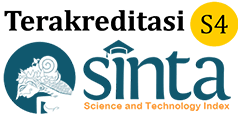accreditation
MENU
| E-ISSN .: 2807-4262 :. |
 |
| About This Journal |
| History |
| Focus and Scope |
| Peer Review Process |
| Publication Ethics |
| Open Access Policy |
| Indexing |
| AI Policy |
| Archive Policy |
| Open Access Statement |
| Repository policy |
| Journal License |
| Policy of Plagiarism |
| Author Guidelines |
| Publication Frequency |
| Article Processing Charge |
| People |
| Editorial Team |
| Reviewers |
| Publisher |
| Contact |
| Template |
 |
| Contact |
 |
| Visitors |
https://agropecuaria.iestpayaviri.edu.pe/
https://poltekbajategal.ac.id/soal-penata-layanan-operasional/
cara adaptif untuk prediksi mahjong wins cara adaptif untuk prediksi mahjong wins langkah cerdas pragmatic mudah bocor langkah cerdas pragmatic mudah bocor klik disini joker mudah menang viral klik disini joker mudah menang viral keuntungan berkualitas red tiger yang efektif keuntungan berkualitas red tiger yang efektif jalan sukses dengan mahjong ways jalan sukses dengan mahjong ways indikasi utama membentuk pyramid bonanza indikasi utama membentuk pyramid bonanza formula pragmatic play mudah menang formula pragmatic play mudah menang evaluasi ginie mudah menang evaluasi ginie mudah menang cara tepat kuasai rtp mahjong ways cara tepat kuasai rtp mahjong ways cara hafal pola pragmatic ternyata ini caranya cara hafal pola pragmatic ternyata ini caranya


